Ready to do something about your thyroid problem but unsure of where to start?
Enter the 10-day thyroid reset:
A complete done-for-you 10-day plan created by me (a thyroid expert) designed to help bring your thyroid back to optimal function to provide you with more energy, faster weight loss, and better thyroid health.
Is this guaranteed to cure your thyroid problem in 10 days or less?
Absolutely not.
But…
It is the first place I would start if I had a thyroid problem and it will definitely help you feel better… or your money back! Just kidding, it’s free. But, still, it works.
Ready to get started? Here’s an overview of what your next 10 days will look like:
Thyroid Reset Overview
I’ve estimated that about 80-90% of thyroid patients can dramatically improve their symptoms by simply making a few tweaks to the way they live their lives.
The key here is that some changes are far more impactful than others and most thyroid patients have no idea which ones work and which ones don’t.
The good news is, you don’t have to worry about that if you follow these rules:
Your diet for the next 10 days:
- Follow the perfect thyroid diet perfectly for 10 days (meals outlined below)
- These 4 meals were crafted to include thyroid-supporting superfoods that are nutrient-dense and mineral-rich.
Your exercise routine for the next 10 days:
- 3x sessions of zone two training per week for 30 minutes
- 10,000 steps per day minimum
Your supplement routine for the next 10 days:
- Thyroid Glandular+ (1-2 capsules per day) – Provides animal thyroid gland powder which includes hormones, prohormones, and enzymes that support thyroid function.
- T3 Conversion Booster (2 capsules per day) -Naturally helps your body produce more T3 thyroid hormone.
- Essential T2 (1 capsule per day) – Provides a source of bio-identical T2 thyroid hormone.
- Thyroid B Complex (1 capsule per day) – Provides pre-methylated and pre-activated B vitamins for energy and metabolism support.
Your detox routine for the next 10 days:
- Actively avoid endocrine-disrupting chemicals
- Drink at least 64 ounces of filtered water each day
- Have at least one deep sweat each week
- Take a detox bath 2-3x each week
Rules:
- Follow the guidelines exactly as outlined. If you miss a day, or meal, or otherwise mess up, your 10-day count restarts.
- No cheating (no cheat meals or missed days)
- Use every therapy as outlined. If you alter the program in any way then you risk not getting the results you want.
#1. The Perfect Thyroid Diet
Meal #1. Fruit and Vegetable Morning Protein Smoothie
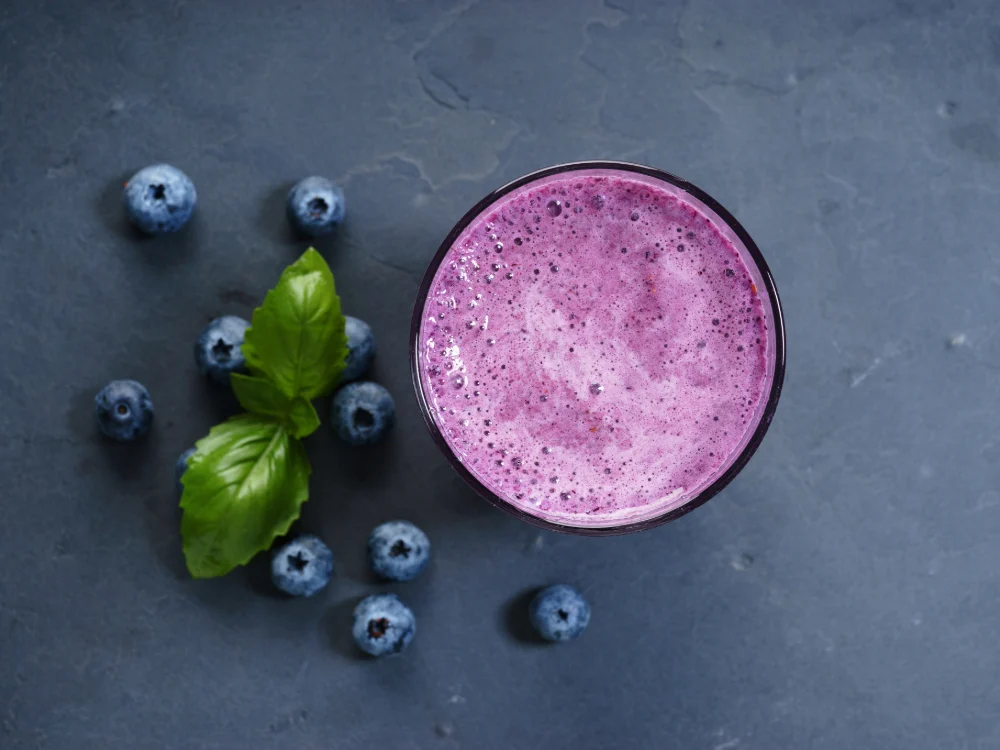
Ingredients:
- 2 ounces of orange juice (not from concentrate)
- 2 ounces of pomegranate juice (fresh if possible but from concentrate is ok)
- 6 ounces of water
- 20 grams of plant-protein powder (you can increase your protein intake based on your needs)
- 15 grams of hemp hearts
- 15 grams of chia seeds
- ~120 grams of frozen banana (roughly one medium-sized banana)
- 140 grams of frozen berries (strawberries, blueberries, blackberries, or raspberries, your choice)
- 2 cups of greens (spinach, chard, or kale)
Instructions:
- Place ingredients into a high-powered blender in this order:
- Liquid
- Protein powder
- Frozen fruit
- Chia seeds and hemp hearts
- Greens
- Blend on high for ~2 minutes until desired consistency is reached.
- Enjoy right away!
Nutrition facts for this meal:
- Calories 499
- Total fat 13 grams (17%)
- Saturated fat 0.9 grams (5%)
- Cholesterol 1mg (0%)
- Sodium 292mg (13%)
- Total carbohydrates 74.3 grams (27%)
- Dietary fiber 15.4 grams
- Total sugars 41.6 grams
- Protein 28.6 grams
Meal #2. Collagen and Protein Shake with Macadamia Nuts and Dark Chocolate
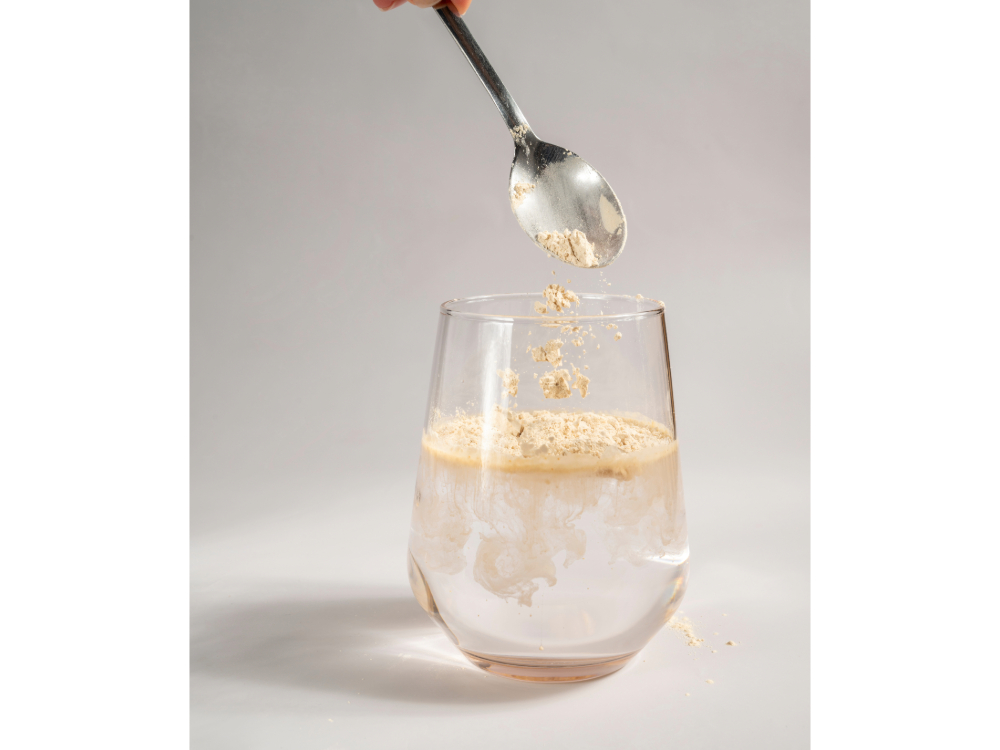
Ingredients:
For the collagen protein shake:
- 20 grams of plant protein
- 20 grams of collagen
- 1 teaspoon of Ceylon cinnamon
- 2.5 grams of creatine
- 500 mg of cocoa flavonols
The macadamia nuts and dark chocolate snack:
- 1 serving of macadamia nuts
- 2 ounces of dark chocolate (at least 70% dark chocolate but higher is preferred)
Instructions:
- Add 8-12 ounces of purified water into a blender.
- Weigh out and add:
- 20 grams of plant-based protein powder
- 20 grams of collagen (make sure to use 20 grams and not just one scoop)
- Roughly 1 teaspoon of Ceylon cinnamon (use over Saigon cinnamon)
- 2.5 grams of creatine monohydrate
- Roughly 500 mg of cocoa flavonols in powder form (this is not the same as cocoa powder)
- Blend or pulse the ingredients until they are mixed together (this will only take about 5-10 seconds).
- Enjoy immediately.
Nutrition facts for this meal:
- Calories 189
- Total fat 1.1 grams (1%)
- Cholesterol 4mg (1%)
- Sodium 343mg (15%)
- Total carbohydrate 3.8 grams (1%)
- Dietary fiber 2.3 grams
- Total sugars 0.1 grams
- Protein 39 grams
#3. Veggie Hummus Plus Protein
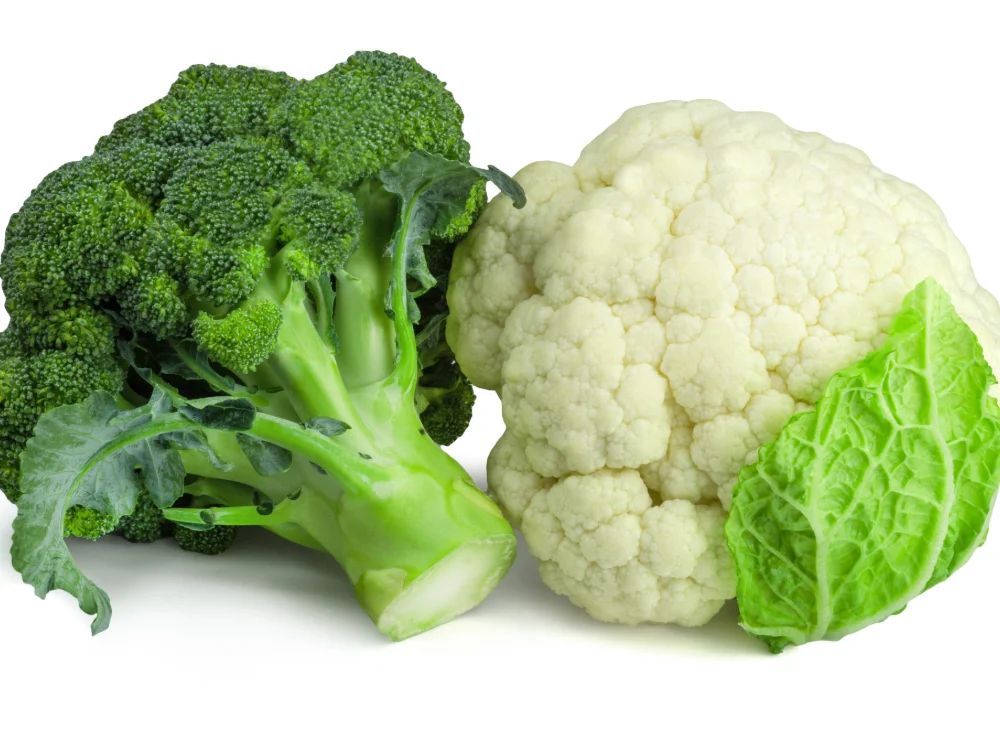
Ingredients:
- 200 grams of frozen broccoli
- 100 grams frozen riced cauliflower
- 45 grams of shitake mushrooms
- 1 small potato (roughly 100 grams)
- 1-3 cloves of garlic (depending on preference)
- 1 tablespoon of extra virgin olive oil
- Salt
- Pepper
- 100 grams of cooked chicken breast (option to substitute cooked chicken for lentils, protein powder, or another protein equivalent that equals roughly 30 grams of protein)
Nutrition Facts for the Veggie Meal (with cooked chicken breast):
- Calories 413
- Total fat 17.4 grams (22%)
- Saturated fat 2.1 grams (10%)
- Cholesterol 64mg (21%)
- Sodium 268mg (12%)
- Total carbohydrate 39.5 grams (14%)
- Dietary fiber 10.9 grams (39%)
- Total sugars 8.7 grams
- Protein 30.9 grams
Instructions:
For the cooked chicken breast:
- Prepare multiple chicken breasts to cook at one time (no more than 3-4 days worth).
- Season chicken breast with salt and pepper (or your seasonings of choice. Additional options may include garlic, paprika, onion powder, etc.).
- Bake in an oven or in an air fryer at 375 degrees until an internal temperature of 160-165 degrees is reached.
- Remove the chicken and allow it to stand for 5-10 minutes.
- Measure out 100 grams of your cooked chicken breast and eat it on the side of your veggie hummus.
For the veggie hummus:
- Start a pot of boiling water (one big enough to hold all of the ingredients).
- Weigh the frozen vegetables, potatoes, and mushrooms. Cut the small potato into cubes.
- Add frozen broccoli florets, frozen riced cauliflower, potato, mushrooms, and garlic to the boiling water.
- Allow the water to begin boiling again and cook for 9 minutes.
- Drain the liquid and place it back into the pot you used to boil everything.
- Drizzle one tablespoon of extra virgin olive oil on top and add salt and pepper.
- Use an immersion blender for 1-2 minutes until you’ve created a vegetable hummus.
- Place on a plate and top with additional salt and pepper (if needed).
- Enjoy!
#4. Final Meal (Several options)
Options & Recipes:
#2. Your Exercise Routine
Exercise is one of those things that you’re either undervaluing or overvaluing.
My experience is that most thyroid patients underestimate the benefits of exercise and are simply not taking advantage of it.
But there are always a select few who try to brute force their way into perfect health with exercise as well.
Regardless of where you fit, here’s what you need to know:
For thyroid patients, exercise is non-negotiable.
Not only does it provide general benefits to your entire health, it has a direct boosting effect on thyroid function.
And this benefit is independent of the effects it has on muscle growth which further enhances thyroid function.
Combine these with the general benefits that it applies to sleep and mood and it’s a no-brainer for supporting your thyroid.
The thing you have to remember about exercise is that it’s very much a Goldilocks type of treatment.
Too much and you can actually make your thyroid worse.
Too little and you really just don’t get much benefit.
You need the exact right amount.
It just so happens that this exact right amount falls into the category of zone 2 training.
Zone 2 training is any exercise that brings your heart rate to 50-70% of your maximum.
All you have to do is pick any exercise that gets your heart rate to this level and keep it there for 30 minutes because that’s where the magic happens.
Any exercise will do, but I’ll give you one of my favorites:
I call it the 3/15/30 treadmill workout.
You walk on a treadmill at 3 miles per hour on a 15% incline for 30 minutes.
This is probably the easiest way to get yourself into this zone and it’s available to almost everybody regardless of their fitness level.

And if that is too intense for you, you can always adjust down the incline or your speed.
For instance:
2.5 miles per hour at a 12% incline for 30 minutes or whatever you need.
This exact workout should be done 3 times per week for a total of 90 thyroid-enhancing minutes.
On top of this, you’ll also need to stay active with low-intensity training:
Low-Intensity Interval Training
Why does it matter? Well, for starters, research has shown that 1 hour of walking per day is enough to reduce your risk of premature death by 39%.
But let’s assume you don’t care about premature death, it also has a huge impact on your metabolism as well.
A simple brisk walk at the end of the day can help you burn an extra 150 calories per day, which, amounts to over 1,500 calories over the course of 10 this 10-day thyroid reset.
And it’s for this reason that I’ve included the 10,000 steps per day requirement.
It doesn’t matter if you get the majority of those steps at once or if you get them slowly throughout the day, just make sure you get at least 10,000 steps per day.
#3. Your Supplement Routine
Are supplements really, really required for this 10-day reset?
Yes, and I’ll tell you why:
Aside from the fact that many thyroid patients are deficient in thyroid-supporting nutrients, they also do one very important thing…
They help you get results faster.
And getting results faster builds momentum. And building momentum builds more results. And the cycle continues until you end up where you want to be.
Are they technically required for you to feel better? No, but they can shave weeks to months off that journey, and that matters.
Here are the supplements I recommend for this 10-day reset and why:
Thyroid Glandular+
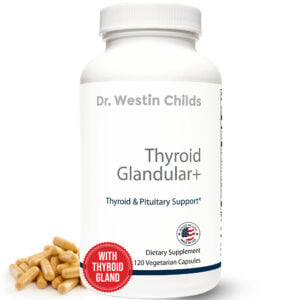
Thyroid glandulars are among the strongest over-the-counter supplements available to thyroid patients because they contain hormones, prohormones, and enzymes found in the animal thyroid gland.
Not only does your thyroid gland use these building blocks to create thyroid hormone, you also get a small amount of actual thyroid hormone that can be used right away.
The result? A boost to thyroid function leads to more energy, more ambition, and a slight boost to metabolism making everything else you need to do a little bit easier.
T3 Conversion Booster
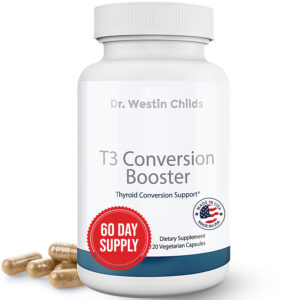
Second, we have T3 Conversion Booster.
This particular supplement contains a combination of ingredients designed to help your body create more of the most powerful thyroid hormone known as T3 through the process of peripheral thyroid conversion.
While thyroid glandulars provide direct support to the thyroid gland, T3 Conversion Booster helps the cells in your peripheral tissues get the thyroid hormone that they need.
This is critical because T3 is the thyroid hormone that activates nuclear receptors in your cells which provides all of the benefits of thyroid hormone.
Essential T2 or T2 Cream
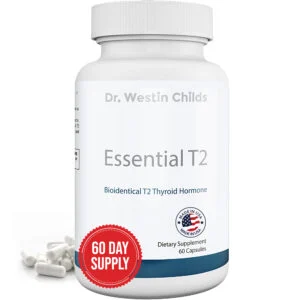
Thyroid Glandular+ provides the thyroid hormones, T3 Conversion Booster helps you create more T3, and Essential provides you with a bio-identical source of the most biologically active form of T2 thyroid hormone.
Both Essential T2 and T2 Cream contain 3,5 diiodo-l-thyronine, also known as T2 thyroid hormone, which is the only thyroid hormone available over the counter.
Even though you may have never heard about T2 before, it’s still very much a thyroid hormone, much like T4 or T3, but its actions are specific to fat cells, metabolism, liver cells, and muscle cells.
We are learning more and more about T2, but, from what we do know, it appears to complement the function of T3 at the cellular receptor by enhancing nuclear binding.
So not only does T2 provide its own benefits, it also supports the function of other thyroid hormones.
For purposes of this reset, you can get T2 in capsule form or in cream form (it’s worth pointing out that it’s the only thyroid hormone available in cream form).
Because the healthy body produces T2, I believe it’s essential to take T2 to mimic this healthy thyroid hormone production in anyone with a known or suspected thyroid problem.
Thyroid B Complex
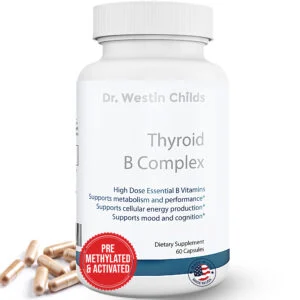
To complement these other thyroid-supporting supplements, we have Thyroid B Complex.
This supplement includes a combination of pre-methylated and pre-activated B vitamins (along with folate and choline) designed to support energy production, metabolism, and adrenal health.
Many thyroid patients are lacking in B vitamins which leads to symptoms like depression and fatigue.
It’s already difficult enough to make healthy choices without these added symptoms, so Thyroid B Complex is included here to fight these very symptoms.
Sustained and long-lasting energy is going to be needed if you are going to cook your meals and exercise regularly over the next 10 days and there’s no quicker way to obtain these benefits than with a pre-methylated B complex.
#4. Your Detox Routine
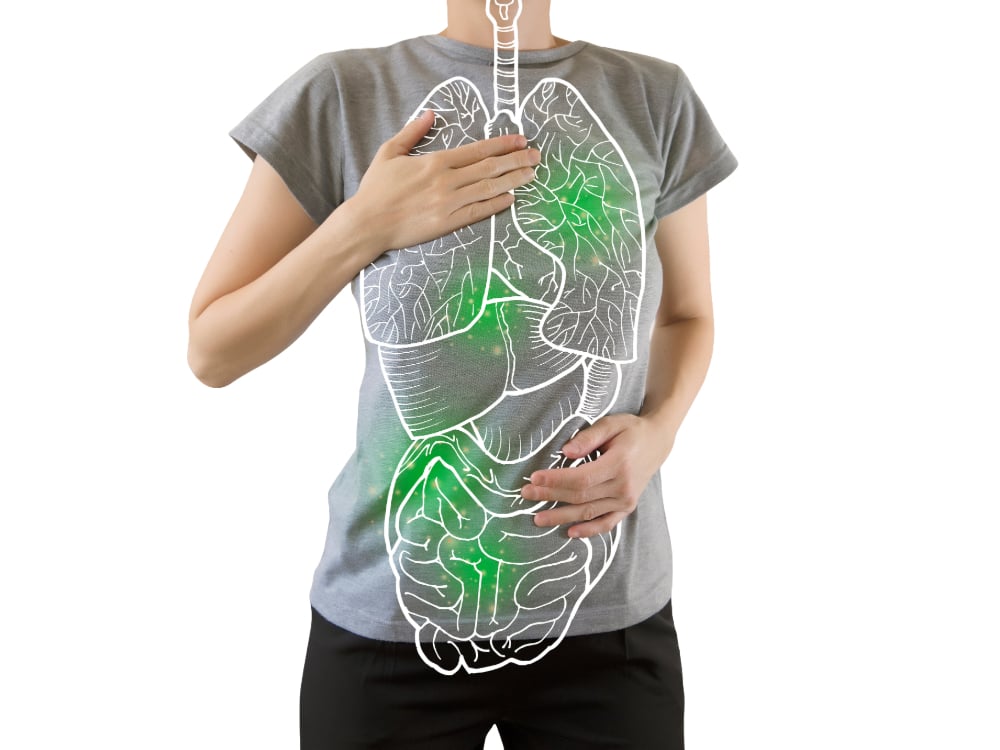
One of the fastest ways to get a near-immediate boost to thyroid function is through simple avoidance of certain chemicals.
These chemicals, known as endocrine-disrupting chemicals, are compounds that you and I come into contact with on a daily basis.
For most people, they aren’t really a big deal because exposure to them is limited to an amount that the liver can easily take care of.
But if you have an existing thyroid problem, things are different.
These chemicals and compounds can disrupt thyroid function at the cellular level and have the potential to make thyroid function worse.
That’s the bad news.
The good news is that it’s both incredibly easy to avoid these compounds, and eliminate them, which provides an almost near-immediate boost to thyroid function.
It’s for this reason that this detox section was added to this 10-day reset.
This isn’t some woo-woo set of recommendations that you have to follow either, all you need to do is take advantage of existing physiologic processes in your body that have been designed to take care of these compounds.
Your job is two-fold:
Augment and avoid.
- Augment – by doing some simple things like eating healthy and drinking enough water you can help your body eliminate harmful compounds through your urine and stool.
- Avoid – By avoiding your exposure to these compounds you will limit the pressure put on the elimination systems in your body.
It sounds complicated, but it’s really not.
Here’s what you need to do for the next 10 days:
As long as you follow each of the recommendations listed above (diet and exercise), you will hit most of these with ease.
That said, it’s still worth pointing out why they are important and how they help:
- Drink at least 64 ounces of filtered water each day (not from a plastic container!) – This will help support the elimination of these compounds through your kidneys and urine.
- Sweat as often as possible, especially when working out – Your body eliminates compounds through your sweat. The more you sweat, the more you will detox. To facilitate this process, make sure you are working out with sufficient intensity to get a deep sweat. Thyroid patients who are underrated are less prone to sweating which is why this one is very important.
- Move your body to enhance lymphatic flow – Your lymphatic system eliminates cellular waste and can be increased with daily movement and regular exercise (if you exercise as recommended above then you don’t need to worry about this).
- Eat foods that activate liver enzymes – That means eating plenty of cruciferous vegetables, foods with high sulfur content, and plenty of fiber. If you follow the meals above, you won’t need to think twice about this.
On top of these, you’ll also want to practice some simple avoidance:
- Stop touching receipts or thermal paper of any kind (they contain bisphenol-a)
- Drink out of glass cups or containers (avoid plastic of any kind)
- Eat the highest quality food you can afford (non-GMO, organic, grass-fed, wild-caught, etc.)
- Check your cosmetics for chemicals (use clean brands or check the ingredient list of your existing cosmetics against the EWG database)
- Avoid microwaving your food in plastic containers
- Store your food in glass containers (not plastic containers)
- Use common sense and limit your exposure to chemicals that have an obviously noxious smell, feel, or taste (if you clean your bathroom with chemicals, ventilate the area and don’t linger, etc.).
- Avoid cooking with non-stick pans
The final thing you’ll want to do is take a detox bath at least two to three times each week.
A detox bath is a simple way to encourage your body to sweat, absorb essential thyroid-supporting nutrients, and help your body relax.
Here’s what you need:
- A bathtub filled with hot water (as hot as you can tolerate) – The goal here is to heat up your body and encourage sweating (sweating is an excellent way to help your body detox).
- 1-2 cups of Epsom Salt – Epsom salt contains magnesium sulfate which will be absorbed through your skin throughout the bath. Magnesium has a calming effect on your body as well as thyroid-boosting properties.
- 1/2 to 1 cup of baking soda – Baking soda has cleansing and soothing properties for the skin thereby reducing stimulation to your nervous system (an excellent way to reduce stress and support adrenal function).
- 15-20 drops of lavender essential oil – Lavender essential oil has a calming effect on the body and may help balance cortisol levels.
- A big towel to wrap yourself in afterward – This is to encourage your body to sweat afterward.
- Optional: dry brush and/or moisturizer for after – Dry brushing supports skin exfoliation, lymphatic flow, and stress reduction. Moisturizing has a similar effect, but not to the same degree. If you have access to either, use them!
Simply put hot water into your bath, mix the ingredients together, and hop in for 20-40 minutes and you’ll provide nourishing benefits to your thyroid and adrenals.
Repeat 2-3 times per week throughout this 10-day reset.
Final Thoughts
Do these things for 10 days and you will be well on your way to improving your thyroid.
But there’s really no reason to stop at 10 days, you can continue using these treatments indefinitely.
The longer you use them, the better you will feel.
It’s that simple.
Have some additional questions? Check out the FAQs below:
FAQs
It’s pretty simple:
The thyroid reset is designed to supercharge your thyroid.
Why does it matter?
Because if you want to live a long and healthy life, at a healthy and normal weight, you need your thyroid functioning at 100%.
I can’t imagine a hormone system that is more important for getting there than your thyroid.
If you are overweight, yes, it probably will.
While not specifically designed for weight loss, the effect of eating this clean, detoxing chemicals out of your body, and supporting your thyroid will most likely have a positive effect on your weight and body composition.
So you can use it as a defacto weight loss program if that’s what you’re looking for.
You can do whatever you want, but I wouldn’t recommend it.
The farther you stray from the recommendation listed above, the less likely you are to get results. It’s that simple.
People tend to want to change things for their own, but the reality is you are more likely to grow the more uncomfortable that you are.
If you find this program a little challenging, that’s perfectly fine and not unexpected.
All I can tell you is that changing your life is worth it, but it’s just something you’ll have to trust me on.
Again, you don’t have to do anything, but I would highly recommend it.
These supplements will give you the extra oomph you need to make these hard changes, stick with them, and, most importantly, provide a much-needed boost to your thyroid and metabolism.
Probably not, but there’s a possibility that it may.
The reason I have to hedge on this question is because each case of thyroid disease is different and not every case can be “cured” in the traditional sense.
While it is true that many thyroid patients can put their disease into remission, not every case is curable.
Even though you may not be able to cure your condition, you can definitely still improve your situation.
Following this reset will not only improve your thyroid, even if you don’t have one, it will still help you feel better, which is really what matters.
Absolutely.
Even without a thyroid, you should still care a lot about thyroid function.
It’s impossible to support your thyroid gland (because it’s no longer in your body), but you can still support thyroid function in peripheral tissues.
And whether or not you have a thyroid, it’s still important to optimize all thyroid hormone levels (including T4, T3, and T2), support thyroid cellular function, and pay attention to peripheral thyroid conversion.
This same information applies to those post-radioactive iodine ablation as well.
Scientific References
#1. http://www.ncbi.nlm.nih.gov/pubmed/21276278
#2. http://www.ncbi.nlm.nih.gov/pubmed/6694559
#3. http://www.ncbi.nlm.nih.gov/pubmed/6694559
#4. http://www.ncbi.nlm.nih.gov/pubmed/17341711
#5. http://www.ncbi.nlm.nih.gov/pubmed/21745527
#6. https://www.ncbi.nlm.nih.gov/pubmed/12137178
#7. http://www.ncbi.nlm.nih.gov/pubmed/3049061
#8. http://www.ncbi.nlm.nih.gov/pmc/articles/PMC1524572/?page=1
#9. http://www.ncbi.nlm.nih.gov/pubmed/15007197
#10. http://www.ncbi.nlm.nih.gov/pubmed/9701160
#11. http://www.ncbi.nlm.nih.gov/pmc/articles/PMC4429650/
#12. http://www.ncbi.nlm.nih.gov/pubmed/20150599
#13. http://www.ncbi.nlm.nih.gov/pmc/articles/PMC4429650/
#14. http://www.ncbi.nlm.nih.gov/pubmed/3630857
#15. http://www.ncbi.nlm.nih.gov/pmc/articles/PMC2721352/
#16. http://www.ncbi.nlm.nih.gov/pubmed/23046013
#17. http://www.ncbi.nlm.nih.gov/pubmed/8834378
#18. https://www.ncbi.nlm.nih.gov/pubmed/3049061
#19. http://www.ncbi.nlm.nih.gov/pmc/articles/PMC2833301/
#20. http://www.ncbi.nlm.nih.gov/pubmed/20351569
#21. https://www.ncbi.nlm.nih.gov/pmc/articles/PMC3163673/
#22. https://www.ncbi.nlm.nih.gov/pmc/articles/PMC3929142/
#23. https://www.ncbi.nlm.nih.gov/pubmed/16148529
#24. https://www.ncbi.nlm.nih.gov/pmc/articles/PMC5490534/
#25. http://www.ncbi.nlm.nih.gov/pubmed/26414233
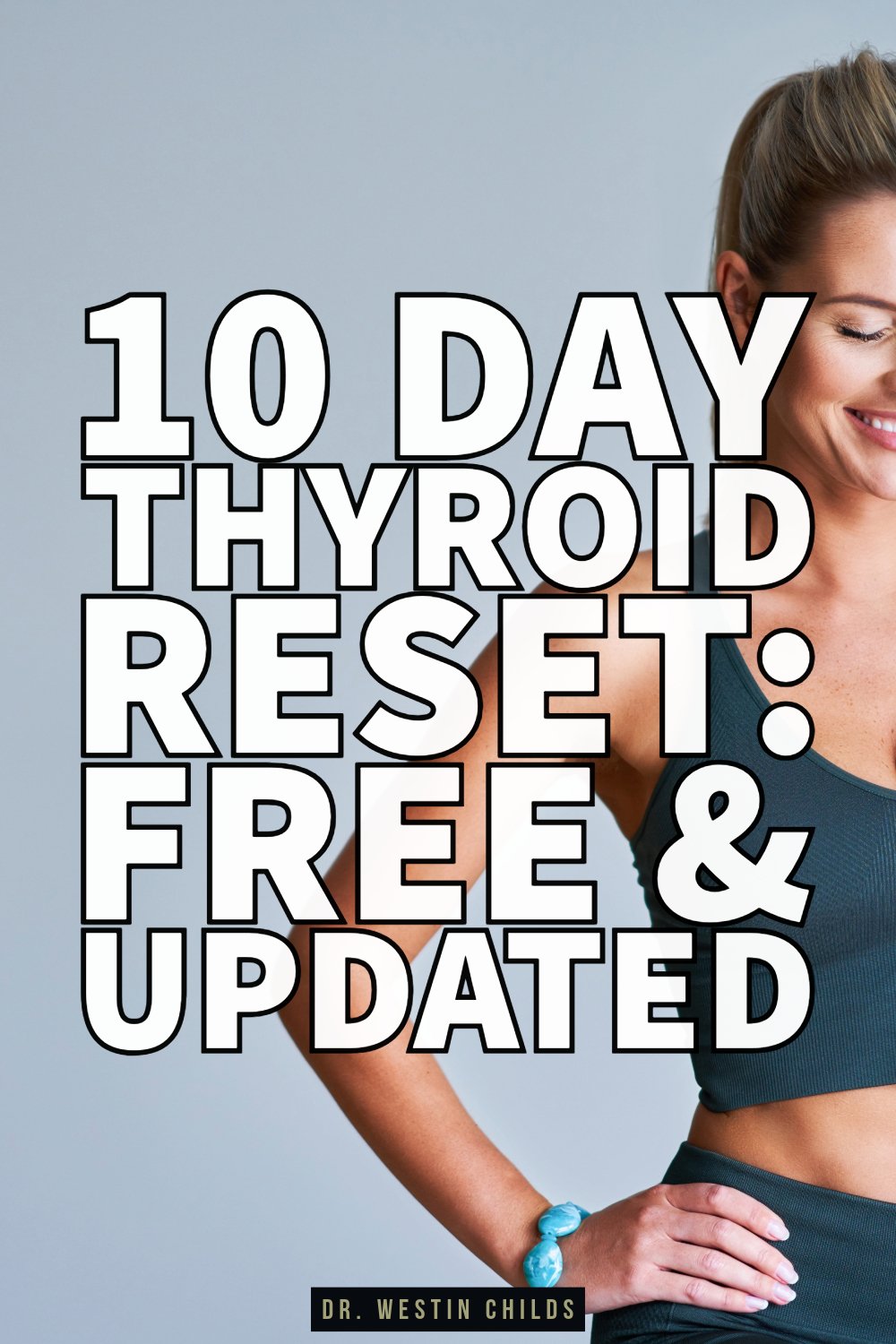
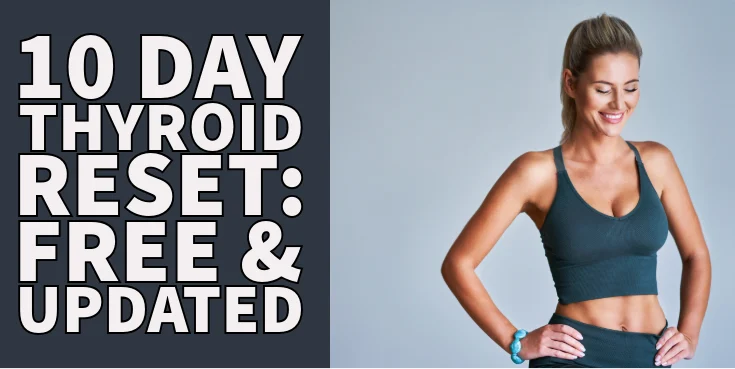
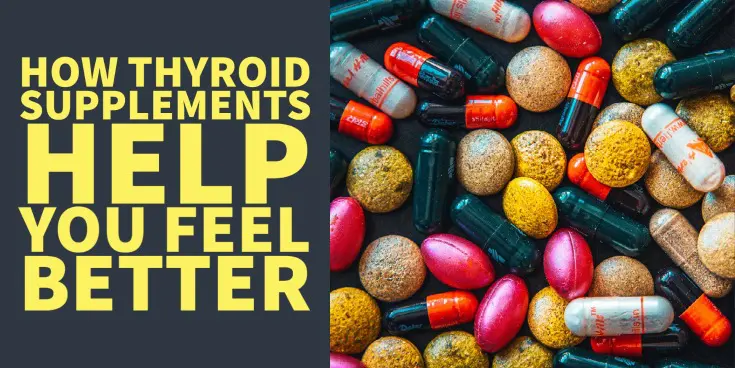
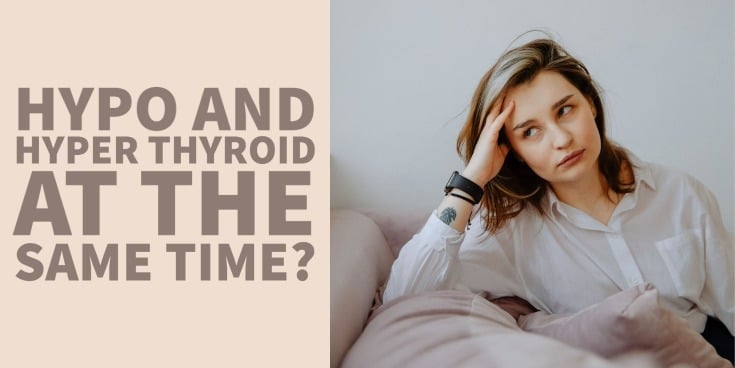
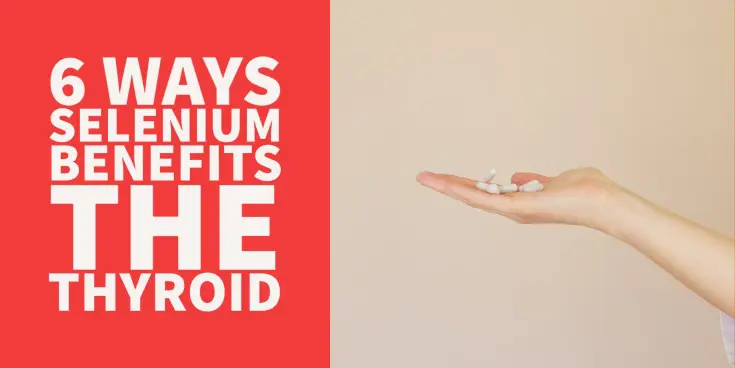
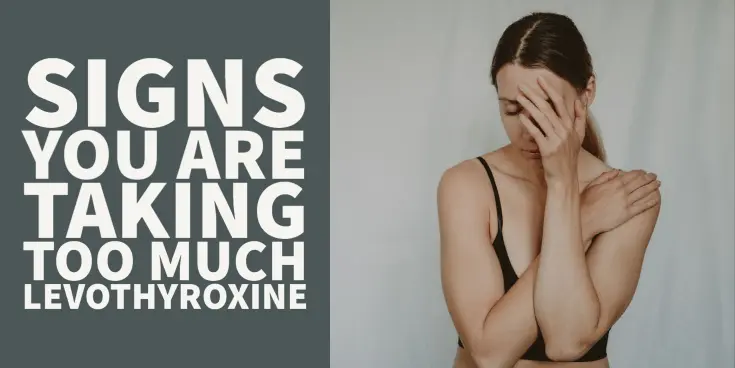
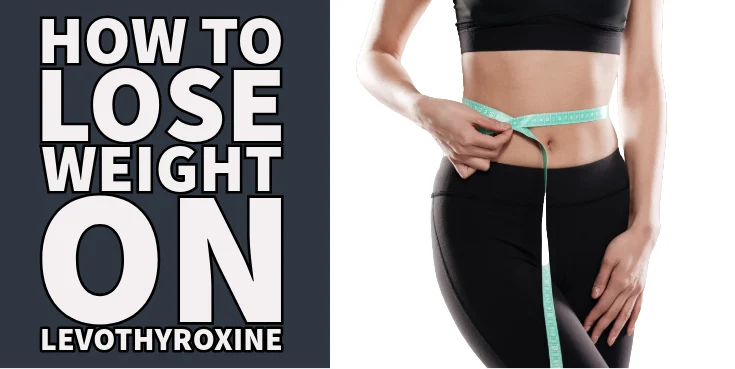
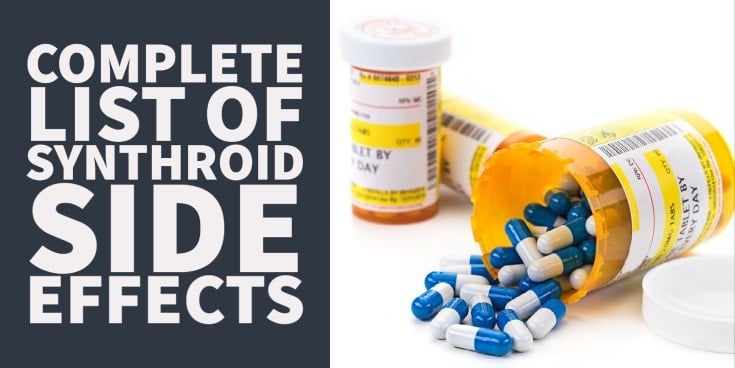

can we eat rice?
Hey Sarah,
Great question. During this 10 day period I would recommend that you stay away from rice. It’s not that I am against rice, but in general I’ve found that most patients who see me have some degree of insulin resistance. Because of this I make the recommendation to avoid it for a short period of time before reintroducing to back into your diet. When you reintroduce this food group make sure to watch your GI function closely! If you experience bloating, gas or distention that is a sign you may have unresolved gut imbalances that need attention.
Good luck!
Dr. Childs, how about organic brown rice? Brown rice contains selenium which is one of the vitamins you suggested to lower the TPO-antibodies.
Hey W,
I would recommend using selenium supplementation. The guide is not tailored to specific individuals, but I’ve found many people to be insulin resistant and for that reason I take it out of this diet. It may be something that many people can tolerate and add back in, but initially I would advise against it.
Does this work if you only have one thyroid clan one thyroid was removed
Hi Liz,
Yep! It works if you’ve had part of your thyroid removed.
Would you recommend the same supplements if being treated with Armour rather than Synthroid or Levothroid?
What is recommended for constipation? System is very slow and doesn’t work normally. Need to take lots of things to get any bowel movement. Mirilax, stool softeners, Docsulate, Milk of Magnesia, even Ex-Lax occasionally. Very uncomfortable. Food does not seem to digest and break down properly. Thanks.
Hey J,
In general the recommendations would remain the same regardless of the medication that you are taking. Just make sure that you monitor your body closely as you make any changes 🙂
Constipation is a serious issue! I plan to write a long post about this in the future. For now I would recommend the following: Aim for 1 bowel movement per day. In order to achieve this I would use magnesium citrate (200-2000mg at night) in combination with sodium ascorbate or ascorbic acid (1000-2000mg per day), titrate this until you have one loose bowel movement per day.
You may be right in that your body is having difficulty digesting food. If you believe that is the problem I would consider using digestive enzymes in combination with probiotics (use soil based organisms like prescript assist). But realize that you may have other gut imbalances that need to be treated and these supplements may improve the symptoms but not treat the underlying cause.
Let me know if you have any further questions!
Chew your food well, the body supplies lots of different enzymes at each stage of digestion, beginning when we put food into the mouth until the food leaves the body through the bowel. Don’t drink at the mealtime as it dilutes the digestive enzymes that are trying to digest the food. Drink between meals leaving at least half an hour approximately after eating or before eating again.When drinking water, it is not food. The minute any beverage other than water is consumed, it is food. Hope this helps. Relax at mealtime .
Just tried to get the PDF after reading this twice so I could take further notes, and I even confirmed my subscription, but no PDF.
Hey Christine,
I’m sorry about that! It may have gone to your spam or promotions box, but in either event I will send it right on over 🙂
Wonderful. I can’t wait to print it out and make some notes. Thank you.
You’re welcome! Let me know if you have any further questions.
When I had trouble with gut health, I used cascara segrada and psyllium, both in capsule form, which really helped. It took a while and it seemed to be more of a natural process to get my bowel working.
Why no beans?
Hey Maggie,
Thanks for the question!
Beans have been removed initially because they are highly fermentable by intestinal bacteria and can cause problems in those with gut imbalances. SIBO and yeast overgrowth are particularly common in hypothyroid and hashimoto’s patients and for that reason I don’t recommend that patients start with them initially.
I am a huge fan of beans as a source of nutrients, though – but only in patients that can tolerate them! Depending on your digestive tract I would remain off of beans and legumes for at least 3 weeks before re-introducing them. And pay close attention as you reintroduce them to see how your gut tolerates it.
When you say pay close attention as you reintroduce them to see how your gut tolerates them, what exactly do you mean?
When I eat beans & legumes I get a lot of gas. I thought that was a normal side effect of those foods. I don’t get bloating or constipation ever.
thanks
Gas and/or bloating are not normal after eating those foods. They usually indicate bacterial overgrowth in the setting of hypothyroidism.
Hello! I am on Armour and Cytomel, as my rT3 was elevated. I have hypothyroid not caused by Hashimoto’s and am on supplements to deal with high cortisol and estrogen dominance. I am working with my doctor to address these issues. Things seem to be leveling out over these past few months, but I still cannot lose all the weight I gained. I lost a lot of weight with a ketogenic diet with an average of 1200 calories, but quickly regained 35 pounds with no change in diet or activity level. Could following the diet recommended help aid in weight loss?
Hey Allie,
It really depends on the person and without knowing you personally I wouldn’t be able to say for sure. This is a very healthy diet for anyone with Thyroid problems, but it won’t be a miracle cure for weight loss in every individual.
Losing weight is primarily about balancing your hormones, not about “dieting”. This guide is designed to optimize thyroid function, help you reduce symptoms however it may also cause weight loss in some people.
If you are primarily concerned with weight loss I would check out these articles:
http://www.restartmed.com/lose-weight-hypothyroidism/
http://www.restartmed.com/lose-weight-hashimotos/
I really like this article. Many thanks for posting.
Dr. Childs,
Do organic eggs raise TPO-antibodies?
Hey W,
They shouldn’t, but every individual is unique. If you have an allergy to eggs or a component of eggs it could theoretically cause issues.
Dr. Childs,
I was on the gluten free diet for a month and included organic eggs as part of my diet, and I felt fine after eating them. However, because my TPO-antibodies was exceptionally high (14K), it was suggested to me that I should change my diet to autoimmune paleo diet, which means no eggs. Does your center have food sensitive test(s) that can determine the type of foods that I’m sensitive to which could possibly cause inflammation?
Dr. Childs,
I’m just reading your blog post on Pinterest. I see I’m about 2 years late. I find it very very on point. I’m recently diagnosed with hypothyroidism and Candida overgrowth. I’m sure I have some sort of digestive issues as well….. I was in the hospital eleven times for pancreatitis between June 2015 and July 2016 which I think may be where all this began….I’ve done countless hours of research and a lot of it coincides with other articles of a similar subject. Yours gives me hope…you make it sound doable…whereas most other recommendations are overwhelming with tons of restrictions…which is stressful…most days I just cry because it’s too much…I’m on levothyroxine and I am taking acidophilus as well as a new supplement called Pau ‘D Arco. I have developed an extreme yeast infection on my scalp and my hair is falling out….I’m completely at a breaking point….please please help me…
Thanks
Whitney W
35
Texas
found this very interesting reading, ive just had my dosage increase to from 150g to 175g of levothyroxine, just feel so tired all the time joints really aching, dropping things or cant grip the way I used to with my hands, I work part time and can wait to get home, if I didn’t need to go out I would be quite happy in the house all day, feeling bit depressed theres no reason that I should but cant seem to shake it off, I go to slimming world which is all about healthy eating but for the last year I just cant seem to lose weight, feeling so frustrated xx
Hey Sandy,
Managing your thyroid is one small part of losing weight, but it’s important to realize that synthroid can sometimes make things worse, not better. In general, if you are having issues losing weight it has to do with other hormonal imbalances (of which thyroid balance is included). If weight loss is your primary goal I have written about it several times to give you an idea of what it takes:
http://www.restartmed.com/weight-loss-hypothyroidism-success/
http://www.restartmed.com/lose-weight-hypothyroidism/
It’s less about diet and exercise and more about balancing these hormones.
you say no low carb diet. but isnt that what your diet is ? HFLC since we eat no starch carbs but rely on vegetables to get carbs
Hey Pam,
Great question! In this article when I refer to staying away from low carb diets I mean nutritional ketosis and/or calorie restricted very low carbohydrate diets where 5-10% of your calories are from carbs.
In general getting carbohydrates from vegetables sources is sufficient for the majority of hypothyroid patients, with the goal of getting around 15-30% of calories from healthy sources of carbohydrates.
I typically don’t recommend ketosis type diets in the setting of extreme adrenal fatigue and/or an under treated thyroid. Since most patients are suffering from 1 or both of these conditions I recommend against these types of diets initially (again referring to VERY low carbohydrate diets and/or nutritional ketosis). This diet is low carb when compared to the standard american diet, but it has been battle tested on hundreds of hypothyroid patients and I know that it works well.
It’s also important to remember that each person will need a different diet, and figuring out what your body needs is a process of trial and error. This is simply a starting guide.
Thank you for this 10 day plan. I am now on day 18 and plan to continue for another week. I have not lost any significant weight but am thankful that it help me accomplish some nutritional goals. I did not think it would be possible for me to eliminate all artificial sweeteners frm my diet,but T have. I feel really great about that. This also made me aware of how much soy I was consuming! Yikes! It is in everything! So, soy has also been completely eliminated. I am hoping to see some weight loss of I press on! Thank you for all the information!
Hey Nancy,
You are very welcome! And good work! Stick with it, your thyroid will thank you 🙂
Thank you! I’ll review ur article every now and then. I have a hypoechic solid nodules in both thyroid lobe but normal size thyroid gland. Please advise so it will not increase in size 1.68. No rice it really keeps me bloated. Thank you for the info.
Hey Llindy,
You are welcome!
I was diagnosed with thyroid cancer 10yrs ago so my thyroid was completely removed so I’ve been on synthroid ever since. I suffer from extreme fatigue and joint pain and have gained almost 40 pounds that no matter what i do i can’t seem to lose no matter what! Do you think this diet will help me? If i could get rid of the fatigue and aches i know í could lose the weight because I’ll become more active and motivated! Anything you suggest will be so helpful…
Hey Shalanda,
Check out this post for more info on how to lose weight, diet is just one small piece: http://www.restartmed.com/lose-weight-hashimotos/
The answer is that this diet may help you with weight loss, but not necessarily. It all depends on why you have gained weight to begin with.
Hello,
I have type 1 diabetes and hypothyroidism. Would any of these supplements affect my diabetes? What is your stance on iodine supplementation? Some people have had great success using an iodine protocol. Also, what is your opinion of vegetarian and vegan diets on thyroid health?
Hey Vanessa,
They shouldn’t affect your diabetes, but each patient is different so monitor your glucose levels and hgb A1c closely. If anything they would improve your control.
Iodine supplementation can be effective, and it depends on the patient. When I start it I always use selenium concurrently and only if I get signs that the body is deficient or lab tests show they are deficient.
Vegetarian and vegan diets can theoretically impair thyroid function though I’ve never actually clinically seen that to be the case. I would rather patients eat tons of vegetables and let me deal with any goitrogenic issues as they arise, rather than having patients fear vegetables and avoid them completely. The chances of goitrogens affecting thyroid function is very slim in most patients.
Thank you so much for the info!
You are welcome!
Thank you so much for your articles and this reset program. A few questions: On this reset can we eat any raw veggies (non-goitrogens)? How about organic grassfed beef/pork? Also, when monitoring basal temps, is a low temp acceptable (under 97 F.) as long as it’s steady? Age 63, I have Hashimoto’s, I’m on Armour, feeling great as far as hypo symptoms but weight won’t budge.
Hey Addie,
This diet represents generic guidelines for people who don’t know where to start.
If you know your body and you know you do well on raw veggies, then by all means eat them. The same is true for grass fed beef and pork.
As long as you are asymptomatic, have great energy and no hypothyroid symptoms then I’m happy. Your body temp could be low for a number of other reasons (including a thermometer that is inaccurate!), so as long as you are asymptomatic I wouldn’t worry about it.
Lastly, your weight may not budge because of other hormone imbalances – including low estrogen from menopause/low progesterone levels or insulin resistance.
Hi,
Can you please explain what a detox sweat is and how to go about it?
Thanks!
Hey Chrisanthy,
It just means that the body is sweating profusely (sweat dripping off of the body). How to get there depends on the person, I usually recommend FAR IR sauna + niacin.
Hi doc,
Thank you for the great post
My wife’s hormonal levels are like this
Tsh-4.18
Ft3-2.71
Ft4-1.02
Total T3-115
Total T4-8.3
She has symptoms of hypothyroidism and has been gaining weight and many other symptoms…
What would be the best drug to prescribe for her… Coz I am not sure about the doctors will prescribe right drugs after watching the Lab results.
Thank you.
Hey Sam,
She will probably do best on a medication containing T3 like liothyronine or natural dessicated thyroid.
Thanks for the article! I am on day 6 of the 10 day reset. Couple questions- at the end of 10 days, what changes can I expect to see? How do I know if I should stay on it longer? Also, how do you know when you can re-introduce other foods? Last, is there a hierarchy of foods to start with when you bring them back into your diet. Thanks so Much!
Amanda
Hey Amanda,
You should stay on it longer if you notice a reduction in your symptoms. In some people it won’t be as effective unless you are also being treated with the right dose and type of thyroid medication, but you should still notice a reduction in your symptoms.
Hi Dr. Childs,
I was dx with Hashimotos & had a total thyroidectomy last week due to suspicious nodules. Pathology results still pending & waiting to see if I will need radiation tx. When would be a good time to start on your program? Not sure where to begin being so fresh post op.
thanks.
Hey Sonya,
The sooner the better. Most patients are under treated after thyroidectomy with levothyroxine (T4 only medications). I would wait to see what is going on with your path reports and then make a decision at that point. Good luck!
After the 10 days, how do you eat? Do you reintroduce foods? Do you do that in a specific order? Do you never eat certain foods again? I almost feel like I need a professional living with me, preparing my food, and giving me proper supplements in order to be successful! I’m frustrated!
If the diet doesn’t help improve your symptoms after 1 month then your problem isn’t with the diet it’s with something else: usually being under dosed or being treated with the wrong medication. If weight loss is your goal, and you don’t lose weight with this diet you will need further intervention.
I am currently taking synthroid 100mcg and a Vita chewable because I stopped eating dairy. Are these ok to take with your recommended supplements? Should I stop taking the chewable vitamins? Thank you!
Hey Stephanie,
Those should be fine!
This was such a great read! My question is if all my thyroid levels were normal but my antibodies were extremely high, would you suggest still doing everything in the first part of the article (diet, 10,000 steps supplements etc) also do you think you would prescribe thyroid meds for that situation! Thanks!!
Hey Kelsey,
If patients are symptomatic with elevated antibody levels then I do generally recommend treatment. And, yes you should still do those things.
Hello
I’m wondering why the diet suggest no beans & legumes. I understand no peanuts/peanut butter (goitrogens) but no beans? I usually eat beans for protein.
Can you recommend a doctor in South Florida who can work with high reverse T3?
I’m not on any medications and have not been diagnosed with hypothyroidism but my Reverse T3 is 21.
thanks
Hey Natalie,
I don’t know any Doctors in that area.
Beans and legumes tend to react in hypothyroid patients due to concomitant SIBO/yeast overgrowth syndromes.
Thank you so much for the helpful information at your website. It is the most thorough I have seen.
Can’t wait to try some of the suggestions.
I started with a new D.O. and he did a complete blood panel. I have hypothyroid with weight gain
that I cannot get rid of. I exercise daily and don’t typically eat more than 1000 to 1200 calories a day.
Have a feeling my t3 is too low.
Again thank you for the information at this site.
Hey Joan,
You are welcome! I write every post so that it is the most detailed article on the subject (at least thats my intent). Good luck with your new physician!
Hello, just wondering if this might be suitable for me as I’m a bit complicated, because, as well as hypothyroidism, I also have type 1 diabetes(42years), Addison’s disease, Adult growth hormone defficiency, fibromyalgia, and chronic fatigue? Would be grateful for ANY advice, as my consultant told me ten years ago, “this is best you are going to get”. Thank you.
Hey Buffy,
Unfortunately I can’t provide specific medical advice, but I can tell you that you will most likely need much more than just this blog post. These changes are a good first place to start (assuming you haven’t made them yet), but with the amount of hormonal imbalance you have you will likely need more intensive care and follow up.
I notice that sweet potatoes and carrots aren’t on the list of foods to eat but have seen them on some other food lists for hashimotos. Should these be avoided for any reason? Thank you.
Hey Kristen,
If you tolerate them you can certainly add them, there is no one-size-fits all diet for everyone I’ve just provided a place to start.
Hi! As a vegetarian I was wondering where should I get my protein during the “cleanse” if all legumes, grains and soy is forbidden? I rely on those sources for my daily protein so I am quite lost if I kick them out of my diet, for a while at least.
Thank you! 🙂
Hey Anna,
I guess I would ask why are you doing the cleanse to begin with? if it’s for weight loss then there are much better ways to go about it.
Hello,
I am researching how to increase t3 levels since my natural path wants to put me on thyroid medication (the one from pigs). She said that I could go on it and off whenever my levels increased a bit more.
I am currently pregnant (20 weeks along) and wondering if the supplements you suggest are safe during pregnancy (zinc, selenium, adrenal support…)?
My T3 is averaging 2.2-2.5 and my tsh and T4 are both normal. From what I have researched on my own it seems drastic to jump towards thyroid medication with these lab results. Any thoughts on what you think should be a normal T3 at this point of pregnancy?
How about using rhodiola rosea during pregnancy?
In your diet you did not list any red meat as being okay. Does that mean you should not eat venison or elk?
I have some type of autoimmune condition and eat a very clean diet (no wheat, dairy, soy, corn…)I also have SIBO but symptoms have improved since becoming pregnant.
Thank-you so much for your insight!
Hey Sally,
You will have to take many of those questions to your PCP, I can’t give you medical advice unless you become my patient.
You can find more info on SIBO here though: https://www.restartmed.com/sibo/
I am interested in buying the supplements you listed, but I was wondering if it would be fine to use them longer than the ten days. For example,would it be safe to use them until they are gone?
Hey Tammy,
They are intended to be used beyond the 10 day program.
I also have tried to download the PDF and it hasn’t come through. Can you please send it to me? Thanks. Also, what are the next steps after the 10 day detox?
Hey Carrie,
The 10 day program is really just a starting point, it doesn’t necessarily have an end because it’s not a treatment by itself.
What kind of tea is permitted?
I am just now getting on Synthroid and Cytomel Combo. I am going to try these supplements along with this diet. I have Reactive Hypoglycemia so I use beans to keep fiber in my diet as alot of fiber is good for the RH. I am excited to see if following this and taking the beans out along with these supplements you recommended(purchased them all) will make a difference. My question is can i continue the supplements or do I just take them for the 10 day period? Do you have any recommendations for Reactive hypoglycemia?
Hey Jessica,
You can continue taking the supplements beyond day 10 for sure.
First of all, Thank You for all this!! I have just recently been diagnosed with Hashimoto’s, but have been suffering (and still suffering) from it for years. My question is: I have torn my rot. cuff so how much of a difference would it make in your program to have to cut out a great deal of high intensity workouts you suggest?
Hey Rebecca,
You can just avoid exercises which include your upper extremities.
Hiya, I was diagnosed with hypothyroidism about 6 years ago ( they figure I had it long before then but no one caught it). It was not until just last year that I was told the cause of it is hashimotos. I have a very aggressive hashimotos and my doctor has me on only synthroid. I have asked multiple times to be tested more in depth but he says my symptoms are just a result of depression ( I have 4 littles kids and little time to myself) I know I am not depressed.. I really just want to feel like a human again and be able to lose the baby weight, but am feeling a little lost this article is a great read, but I am wondering if this is ok to do while breastfeeding or if I should wait until I am no longer nursing?
Hey Rosalina,
I wouldn’t make any changes, take any supplements, etc. if you are nursing without first consulting with your physician.
What would be a good breakfast to have on the 10 day thyroid diet, I would normally have something with milk, are you allowed to have home made cashew or almond milk, also I’m unsure how to fit in all the protein options as it says 3 servings plus snacks. B
This was a great post. I have been suffering from Hypothyroidism for over 2 years. The first year and half the doctors did not put me on medication. I gained 20 lbs that do not seem to come off even with Zumba, Pilates, Walks and what not. Its difficult to motivate myself to even try. Anyhoo.. Looks like this is back to basics for me. Feeling inspired. Hope I stick through 10 days to feel better. Thanks!
Hey Niara,
Hope it helps!
Hi,
thanks a lot for doing this articles. I am not english native speaker and I am just trying to find out, how it is with hypothyroism, my husband has higher level of TSH 6,63 mlU/l, normal FT4 12,8 qmol/l and higher AB/TPO 242 IU/ml. And cholesterol 6,58 mmol/l (LDL 4,88). I suppose it´s Hashimoto´s. The problem is that his endocrinologist said him almost nothing about this, just only recommendes the pills for treatment (for his whole life). I would like to know, if there is hope to deal with this without drugs and heal it in natural way, I think in our republic don´t exist the doctors with other point of view – just only the pills… it would be very encouraging to know that there is other way. Unfortunatelly in our country are not so available this information (in our language) so I am slowly trying to find out something about this in English – that means more time because of translation 🙂
So thank you very much once again.
Hey Katerina,
You are very welcome! I hope you find it helpful and I hope the translation process isn’t too much of an issue, but thank you for stopping by and leaving a comment.
Hi Dr. Childs,
I have been diagnosed with Hypo. My story is that the pills they gave me made me feel worse so i stopped taking them. I was on a keto diet and it helped a bit but then the symptoms came back (during this time i took spupplements, Selenium, zinc, B vitamins, etc). I did a 40 day fast on smoothies and by the end of it all of my hypo symptoms went away. I started eating again (everything and gained the weight back), now i’m a vegan but the symptoms are worse. I don’t know what is going on. What should i do? Thinking about doing another 40 day fast but i can’t keep that up, i have to eat to survive. I feel lost. Thank you for any advice you could give me. (I am also allergic to gluten)
Hey Cristina,
It’s impossible to say what is going on without lab work. I would consider a full hormone evaluation including sex hormones and insulin/leptin.
Thank you so much for this! I am going to start today. I’m thinking I should stop taking my current multi vitamin because I don’t want to overdo it on the selenium (and my multi has zinc oxide), but then I’m concerned about not taking enough of the others that aren’t in the ones you recommend. Any suggestions?
Hey Amber,
I generally recommend against the use of multi vitamins.
Hi Dr. Childs! I just found your website yesterday and have been devouring all the information. Thank you for your detail and sharing such helpful information. How do I get your 10 Day Thyroid Reset diet you talk about in this post? I don’t see a link. Am I missing it somehow? Thank you!
Thank you so much for this and all your resources. I just completed this 10 day reset protocol and I dropped 5 pounds which feels like a small miracle considering it has been impossible for me to lose weight in the past two years and whenever I have tried to lose weight since my hypo diagnosis it has just pushed my weight up even further. One question though…the first few days I felt awesome….then my energy levels crashed (about day 4 of the protocol) but I stuck it out….and like I said there was significant weight loss, but it seemed some of my hypo symptoms intensified, especially fatigue…..any thoughts?
Day 11 – after completing the protocol. I added back in some clean grains (i.e. Organic, gluten free, unprocessed) and some more fruit, etc and it seems to help my energy level some, but I’m still dragging. Do you think I may have swung too low carb for my body?
Where did you find the guide for the 10 day reset protocol? I am unable to find anything with the information and the link that I tried won’t open or download. Thank you.
Hi, Your article helped me a lot in understanding the real issues I’m having. I wish you were in UAE.
Dear Dr. Childs,
First of all, thank you for all of the good work and information you are providing in your pages. I’ve been devouring all of it for the past week!
I’ve been struggling for over 10 years with thyroid levels and it’s symptoms — weight gain/inability to lose weight, chronic joint issues & some muscle contractions, irregular cycles, depression + all of the other goodies that come with hypothyroidism. So very frustrating, especially because I diligently work to be healthy in diet & exercise. I’ve been eating well for years now + I incorporated slow intense resistance training a couple of years ago, but with yet another recent dip/depression/joint pain/weight gain, I finally committed to a LCHF diet. (I so enjoy the Mediterranean plate, it was difficult for me to give up all that farmers offer, esp. grains & fruit!)
Unfortunately, nothing on the scale has budged and I still don’t feel right. So, I’m regrouping again & going in for more blood work to see if something has changed or if the levels are not optimal for me. (I hope & pray my doctor will listen!)
I would love to download your 10-day pdf mentioned in this article, but I, too, are unable to do so. Would you mind forwarding the pdf? I’d be most grateful.
Thank you!
I also have been unable to download the 10-day pdf.
Hi Julie,
The 10 day reset protocol has been removed and replaced with this 60 day program, you can find more information here: https://www.restartmed.com/hormone-mastery/
Hi Connie,
The 10 day guide has been removed and replaced with this 60 day guide: https://www.restartmed.com/hormone-mastery/
Hi Dr Childs. Thank you for this informative site!
I have learned a lot. I would like to ask your opinion on timing. I am currently on Nature-Throid 2 grains. My doctor just put me on T3 ( Cytomel) 5 mcg in addition to the 2 grains per day of Nature-Throid . Do most people have success taking the Cytomel together with the Nature in the morning? It was recommended I split the Nature dose (6am and 11am). but I am unsure about the Cytomel and the best time to take it. The only instruction given is to take it on an empty stomach.
Thanks!
Hi Antionette,
Dosing is highly individual and there are probably no less than a dozen different ways to take thyroid medication.
I have had hypothyroidism for years and I have done research into my condition. I want to thank you for putting this together in a concise and easy to follow article. Well done. I wanted to ask if you have seen any correlation between hypo and vitamin d. Whenever my thyroid function drops I also have vitamin d deficiency. Have you found this to be the case as well? I also had a doctor recommend chromium piculate to help with energy boost. What are your thoughts on that? I would also like to ask what you would recommend now that I am in menopause I find my symptoms are worse the fatigue the mental fog and forgetfulness (is quite embarrassing).
Hi Marie,
Almost everyone has low Vitamin D3 because of sun screens and a general lack of sunlight, so it’s difficult to draw a conclusion because almost everyone I see has both hypothyroidism and low vitamin D.
What do you recommend for the elimination part when dealing with Candida overgrowth and similar?
Hi there,
Just wondering where the actual plan is? or is it just the info on this page?
I am a thyroidectomy patient d/t papillary thyroid carcinoma. I stumbled across your site in desperate search of finding a way to feel more ‘myself’ prior to having my thyroid out. I had my first surgery in 2014 when I was 18 followed by RAI treatment and 2 more sequential surgeries. I was a very petite girl before, since then I have gained about 35 pounds. I am hoping this will help me get back on track, and I have also looked into desiccated thyroid hormone, I just need to get my GP on board with me. If you have any supplementary information about either Cytomel (in addition to synthroid) or Armour (on its own) it would be greatly appreciated.
Thanks in advanced,
Kelty
Hello Dr. Childs! I loved your article. It reminded me of a similar article from Authority Nutrition, a source I absolutely adore. I wanted to know, with regards to your recommendations for HIIT, what you thought of the following quote from Healthline:
Aerobic exercise appears to be very effective at increasing insulin sensitivity in people who are obese or have type 2 diabetes (31, 32, 33, 34).
One study compared two groups. One performed sustained aerobic exercise, and the other performed high-intensity interval training.
The study found that although both groups experienced improvements in fitness, only the group that performed sustained aerobic activity experienced significantly lower insulin levels (34).
End quote
Thank you!
Dr
I have hypothyroidism. Not overweight, exercise hard 3x a week, medically treating for high blood pressure, high cholesterol. Have been on hormones since 1993 when I had a complete hysterectomy. In trying to get off hormones, experienced hair loss. Conflicting doctor recommendations. I had a tia and one dr warms if I don’t get off hormones I’m in stroke risk from them. Another says you can’t do without it. There’s been one blood test after another, including on the liver,adrenal, etc. I had a lot of symptoms when I went cold turkey off the hormones, including fatigue, constopation, body inflammation. Very conscientious with my diet for years. Brought up on Mediterranean diet and continue with it. Have eliminated gluten, no processed foods. Take armour thyroid 120. I just don’t know what to do, stroke, hair loss and fatigue vs. staying on hormones. Low low t3. Thank you for any answers.
Hi Dr Childs!
Thank you for this amazing information and for fighting for people to get to the bottom of their issues
I’m still trying to get my diagnosis correct as it’s something in between of Adrenal Fatigue and low thyroid function♀️I have a 3.3 TSH with everything else normal (not been tested for reverse T3 though) and have been seeing a naturopath who has been super helpful, but we are still not 100% sure what I have
May I ask why you don’t recommend multi vitamins?
Thank you!
Hello Dr. Child’s,
I have been dealing with hashimotos for a year now. I’ve seen two different endocrinologists and the only treatment that they have mentioned is levothyroxine doses. My antibodies are over 400 and my TSH is 19 and has only gone up over the year. I guess I’m just wondering why they might not have mentioned diet, supplements, and all of the other essential parts of this blog post?
Thank you for all your posts, super helpful! A question I do have…what to do about low sex drive? Like I mean non-existent. Do you have a post on that? Or any recommendations of supplements. I have had this for years and tho I’ve asked my doctors, they just skip over it. Please direct me. Thank you.
Hi B,
You can find more information about treating low sex drive in this post: https://www.restartmed.com/low-sex-drive-women/
Question: I keep searching for something I can agree with. I love all your information. I however have hyperthyroidism and I’m wondering how your plan works with this? There’s not as much help for this. I currently take LDN (low dose naltrexone) which is an alternative to killing off my thyroid. My DR believes it’s more of an auto immune issue. Any helpful thoughts greatly appreciate.
Hi Patrice,
This particular program is designed for hypothyroid patients, not necessarily those with hyperthyroidism. Many of the therapies listed here will help with both conditions, though.
What about those of us that don’t have a thyroid anymore? Would this still be beneficial? I had a TT for cancer. Thanks!
Hi Tabitha,
Yes, the information here is still relevant for those who are post-thyroidectomy.
You can also find more info here: https://www.restartmed.com/weight-loss-thyroidectomy/
Hi Dr. Childs,
I had a total thyroidectomy should I follow this thyroid reset diet or would it be pointless having no thyroid to reset? I am so careful with my diet and I am at the gym doing classes four times per week. I mix it up two weight training classes (Bodypump) yoga and a combination class of yoga and Pilates. I walk also. My weight won’t budge. My thyroid levels are stable with Synthroid and Cytomel. I juice vegetables once per day and take selenium, magnesium, zinc, L-Tyrosine, B complex, EFA, probiotics. I wonder if I have insulin resistance. I’ve had no thyroid for ten years plus I’m turning 50 soon and it’s feeling impossible for my weight to budge
Hi Jodi,
Most of the information listed here is still relevant for those without a thyroid because T4 to T3 conversion is still important if you are taking T4 medication.
I was told I shouldn’t take Cytomel because I have CAD. Do your products work like Cytomel and are they safe for me to take?
Vicki
Hi Vicki,
Our products contain vitamins and minerals, they do not contain hormones such as T3 or T2.
Hi
I wondering if these supplements help with raised cholesterol, particularly with high ldl level. I have had partial removal of thyroid and taking eltroxin.
My cardiologist put me on 25 MCG of Liothyronine SOD. I was already taking Levothyroxine 112. My hair started falling out at an alarming rate. Now he wants me to continue the Liothyronine and cut the Levothyroxine in half. I am very nervous. I worry if I keep losing my hair, it will never grow back.
Hi Peggy,
Generally, hair loss from liothyronine is temporary. I’ve written extensively about hair loss and thyroid function which you can read about here including tips on how to prevent hair loss: https://www.restartmed.com/thyroid-hair-loss/
I would check out this article for more information which should be helpful for your situation!
I’m a 4 year papillary thyroid cancer survivor who is in desperate need of some guidance. I was diagnosed back in 2014, when they found a lump on the side of my neck, which later came back as a 4cm cancerous nodule. During my TT they removed that monster and some cancerous lymph-nodes. I was also told that they also removed my parathyroids, reconstructed them(whatever that means), and then put them back in.
First of all, is the 10 Day Thyroid Reset Diet good for patients without a thyroid and who have to have both hyper and hypothyroidism, in order to suppress the cancerous tissue from regrowth? My last thyroid level check was back in May and my T3 Free was 2.90, my T4 Free was a 1.20 and my TSH at a 1.63.
Secondly, my levels for insulin, estrogen, testosterone, leptin and cortisol have never been tested either. Here lately I’ve been to the point of exhaustion as I’ve never experienced before. It’s gotten so bad as to the point of falling and staying asleep all day, sometimes the whole weekend too. I use to work out 5 days a week, since last September, but had to stop a month ago, due to lack of energy and other symptoms.
I also take my daily supplements of a scoop of super collagen, a 1/4 teaspoon of bulk supplement’s ascorbic acid powder, in the am and maybe an hour or two after I take my Synthroid and Cytomel. Upon reading it seems I shouldn’t take any calcium supplements til 4 hours after taking my thyroid meds. Is this true? Maybe this is the cause of my body feeling sooo tired and out of whack? I feel mustarding up energy, just to go potty, is quite the feat. I also supplement with Island Nature’s Ultra 30 Probiotics, ON Opti-Women MultiVitamins, Viva Naturals Krill Oil, over the counter Calcium 600mg with Vitamin D 3 800 IU and Glutamine, most of all which I take twice daily.
My endocrinologist and primary care physician, both have ran my Thyroid levels and CBC panel, with no answer in sight, because all the tests come back “normal.” I am currently take Synthroid 137mcg in the morning, along with 5mcg of Cytomel. My endo just advised me to start taking my Cytomel tablet, in the afternoon, for an added boost of energy, that I have yet to feel.
With all that being said could you recommend for me? I’m gasping for air, hoping I get pointed in the right direction. Thanks in advance and any response is greatly appreciated. Looking forward to hearing back from you soon! Good night and God bless.
Hi Jeannie,
It would probably be a good idea to check your total T3 and free T3 as these tend to correlate with thyroid status better than TSH.
My endocrinologist finally got back to me. I sent her all the info, along with your websites, and she stated that everything from her end looks within range. It’s so annoying when doctors don’t listen to their patients. I thibkb we know a bit more about our bodies, especially when we feel something is off. So, I’ve since emailed my PCP with all your info and websites, so, now it’s another waiting game. I’m also looking into other doctors who have more knowledge about thyroid issues, in the Houston area.
In your response, I thought free and total T3 were one in the same. So, instead of, looking at my TSH, T3 and T4, as whole, it’s better just to go off my T3, in cases like mine? Also, should I hold off in ordering your suggested supplements? Or should I just start somewhere? I’m also going to start the Paleo diet this coming Monday.
Thanks for your medical advice. It’s all greatly appreciated.
Hi Jeannie,
The supplements and diet shouldn’t cause any negative effects so it would be reasonable to start with the therapies that you have control over.
Email us: Click to view address
Can I take the supplements if I’m taking Armour? Or, are these just for people who are not on medication yet?
Hi Chali,
All of these supplements can be taken in conjunction with or without thyroid medication.
Hi Dr. Childs.
2 years ago my TSH was in upper normal range (4.9). But I had the symptoms (hair loss, cold sensitivity,…). When I started exercising my TSH went up drastically (up to 9), I also started to have trouble sleeping. I stooped exercising TSH went back to 4.9, sleep returned after some time. Exercise was very light, but looked like my body couldn’t handle it.
When I started exercising again trying more slow approach – again my TSH almost doubled. My doctor put me on synthroid.
I think he did based on numbers he saw (9).
I am able to exercise now (a little). But none of my other symptoms have improved ( hair loss,…). And my T3 is very low (lower then before I started the meds!!!). It doesn’t seem to concern my doctor, because my TSH is normal. I think my T3 is low because I exercise. It was a case before, right?
My cholesterol is border line now as well. So I do not know how to balance meds, exercise, food that I do not hurt my body instead of helping it? Any thoughts on my case?
Appreciate your help,
Lina
Hi Lina,
I think the best thing you can do is to learn and understand more about the importance of the other thyroid lab tests. This post should help you do that: https://www.restartmed.com/normal-thyroid-levels/
Hello Doctor Westin Childs. If we have mild hypthyroidism and follow 10 days strict diet and lifestyle you advised. Can we bring back thyroid to normal and cure this? Or is it something like we need to be on medication for lifetime?
Hi Sharada,
Some people can cure their condition but it just depends. I would take a look at this article for more information: https://www.restartmed.com/can-hypothyroidism-be-cured/
Loved reading this, a little overwhelmed but ready for change. Would love more info!
Hi Gina,
Glad you found it helpful! I have over 260 articles on thyroid disease so there is plenty to read and learn 🙂
I can’t afford your products 🙁
Hi Wilma,
No problem! I still have many therapies which you can take advantage of here: https://www.restartmed.com/natural-thyroid-remedies/
Your website Dr. Childs is by far the most comprehensive tool for us Thyroid folks, I have ever seen. With only this one article, I have a general idea of the course of treatment and I can be checking things as questions would rise for sure. This is a well of information for us!
I do not see where I can search if somebody has asked this question before. This is my first attempt to ask you a question directly Dr. Westin and it is very important for me.
Can you make recommendations whether or not stool tests should be utilized more than once to be re-evaluating a Young 12 years old Thyroid patient for her weight gain and some stomach issues like gas, discomfort/pain after eating and occasionally blood on the stool with a constipation? She was diagnosed with Graves disease in 2015, but we were able to bring the Thyroid function to normal with Lemon Balm, Bugleweed tinctures and Supplements. She has been with Normal Thyroid levels since September of 2017, except that she gained a lot of weight and I am concerned that she might be becoming HypoThyroid now. We are treated by an Endocrinology Professor at Children’s Hospital of Alabama and a Functional Medicine Doctor in Atlanta, Georgia. The FM doctor wants another stool test, which is quite expensive. I wanted to ask you about that since I have not heard you talking about doing stool tests at all for evaluating the Thyroid and/or other underlying issues.
Thank You !
Your Web site is very, very Useful, Doctor Westin!
I just tried to post a question, but I do not see it coming up. Is it possible that it is not taking any new questions or does it take time for the question to be posted on here?
You seem to have addressed hypo but I am hyper please give information addressing that issue – foods to eat and foods to stay away from etc.
thanks
Hi Joy,
You can find more information on what to eat if you have hyperthyroidism here: https://www.restartmed.com/graves-disease-diet/
Hi there,
I, unlike a lot of your patients, was born without a thyroid and take medication in replacement. Therefore my body produces no TS3 & TS4 naturally. Do you have any recommendations or amendments to this ten day diet which would more speicifically apply to me?
Hi Laura,
The principles are largely the same whether you have a thyroid or not because you still must take thyroid medication which is an exact replica of what your thyroid would make normally and that medication still must be converted just like it does in people with a thyroid gland. The only difference is that you need to be more aggressive with your thyroid hormone medication replacement compared to those people with a thyroid gland.
You briefly mentioned water. I’d like to read more about how increased water intake improves Hashimoto’s.
Hi Ina,
I wouldn’t say water is a therapy for Hashimoto’s but instead, that hydration is required for optimal health in general.
Hi Interesting article. You talk about Insulin resistance. As well as having had a Total Thyroidectomy I have been type 1 diabetic for over 40 years. I am unsure how to measure insulin in this case as I am sure I am bound to be insulin resistant. Please can you give me any information as to how to deal with TT and Type 1 diabetes. I am now taking T3 only but am not losing much weight. When I first added 2 x10mcg to my 100 T4 I did lose wait but felt anxious. I have gradually changed to T3 only. I may not be taking enough. I take 30mcg in two doses
So I noticed that you did not included menopause in the information about exercise. Can you comment about this.
Hi Dr. I was diagnosed with ulcerative colitis this February. I was taking mesalamine but only helped for a book and went back to symptoms. I found another doctor and I’m not taking mesalamine but he has me on probiotics, colostrum, and other supplements and just the same ir only helped a month and now back to showing symptoms. Bloody stool, constipated, watery stool with ball like stool. My thyroid was checked and turned out fine. Would you still recommend me those supplements or anything else. I want to help my gut and get my bowels back to normal.
Greetings Doctor, l did not read all the comments so l don’t know if this was addressed: my thyroid went haywire 1994 with graves and hashimotos. Around 2004 l was placed on levoxyl and currently take 75mcg per day. Is it too late for me to “heal”?
Hi Kim,
There’s a fairly high chance that you have some degree of permanent damage since you’ve had Hashimoto’s for a few decades.
Typo about detoxing bath. You have said to put ingredients into your but. Shouldn’t it be bath? grins.
Hi De,
Haha, yes! Please do not put those ingredients into your butt, put them into the bath instead. The typo has been fixed, thank you!
I have the compound heterozygous MTHFR mutation. Should there be any concern for me following this regimen and taking those supplements along with the ones that I currently take for my condition?
Hi Enid,
Not at all. You can also check out adding this one: https://www.restartmed.com/product/thyroid-b-complex/
I know this sounds odd, but chia seeds set off a number of gi symptoms for me. Are will this work if I skip the chia seeds in my smoothie? Is there anything else I could use instead? (Basil seeds maybe)?
Also, I take tirosint and t3, 5 mcg – is this diet and supplementation in addition to those?
Thank you!
Hi Sherri,
You can swap out chia for hemp or flax, but I wouldn’t do anything other than these 3.
These guidelines do not take the place of thyroid medication so you’d continue taking whatever you were before you started.
What about the cost of the food then your stuff. Budget blow out here we come. One world for the rich another for those working poor, what do you do for us?
Hi J lowry,
I don’t really think about treatments in terms of their cost but rather their effectiveness. What I would say is that investing in your health is worth it, and even if you have to spend more right now, you will save way more in the long run.
I’ve explained this in more detail here where I go through how much not treating your thyroid will ultimately end up costing you: https://www.restartmed.com/cost-of-hypothyroidism/
The short answer is that spending a few hundred bucks right now is much cheaper than doing nothing.
If you read my statement again you might get.
Hi J Lowry,
I read it again but it didn’t change my response. If you have any further clarification or questions, feel free to share them here.
I’m in the USA. Grew up cooking with tsp/ tbs, oz, cups. Are grams “weight”? Never measured in grams, always avoid the rare recipes that use grams. (Don’t own spoons w/”grams” written on them, or measuring cups. Sarcasm.)
Hi Trish,
I’m in the USA as well. Grams are a unit of measurement that allows you to weigh out your food (but you can use ounces or pounds) and easily replicate the recipes with exactness. You can sometimes get away with using tablespoons as proxy measurements, but they aren’t as accurate as actually weighing it out.
This is why you’ll see baking recipes say use 250 grams of flour instead of something like 3 cups. Each cup of flour can have more or less weight depending on the density of the flour, how it was measured, and so on. But none of this matters when you weigh your food. If you haven’t done this, I would highly recommend it as it’s a game changer.
You’ll need a food scale which you can grab off amazon for $10 or less.
I tried something similar to the first meal of the day (Fruit and Vegetable Morning Protein Smoothie) and it gave me terrible diarrhea, so I don’t know, but it’s probably not a meal for everyone.
As for plastics, how about some Tritan? It’s supposedly OK…
So I decided to give it another chance. For the first time, I developed a coated tongue, sore throat, and finally mucus. So I tried it again, this time all organic, as I suspected possible chemicals in the food. With the same result. So the third time I proceeded by doing everything mentioned in the article, except for the diet (and filtering the water). I ate what I was used to. And the result really came! My thyroid gland is functioning as it should again, without medication!! I still tried changing the diet slowly and item by item after the tests, but again with the same result. So this procedure (for me) really works, but without said diet. On the contrary, it seems to be quite dangerous… And I really wonder why this is so? I eat the individual items listed in it occasionally and have never had any (allergic) reaction to any of them.